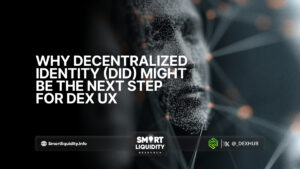Introduction to Decentralized Exchanges


Decentralized exchanges (DEXs) have emerged as a revolutionary concept in the world of cryptocurrency. Unlike centralized exchanges, which rely on a central authority to manage transactions, DEXs operate without any intermediary.
This shift towards decentralization has transformed how people trade digital assets. By utilizing blockchain technology, DEXs allow for peer-to-peer trading, providing users with greater control over their funds.
In a decentralized exchange, users’ funds are never held by a third party. Instead, transactions are facilitated through smart contracts, which are self-executing agreements coded into the blockchain. As a result, control is retained by the individual users, reducing the risk of hacks or platform failures that are common in centralized systems.
The benefits of DEXs include enhanced privacy and security. Since transactions are conducted directly between users, sensitive information is not exposed to third parties. Additionally, users are not required to trust a central entity to protect their assets, as the blockchain ensures the integrity of all trades. Moreover, DEXs tend to be more inclusive, as they allow anyone with an internet connection to participate in trading without needing to submit personal information.
Despite their advantages, decentralized exchanges are not without challenges. Liquidity issues can arise, as they often depend on user contributions rather than institutional market makers. Additionally, while DEXs offer more privacy, they can be less user-friendly, especially for beginners. However, as technology continues to evolve, these platforms are expected to improve in both usability and functionality.
In conclusion, decentralized exchanges represent a significant step forward in the cryptocurrency landscape. With their emphasis on privacy, security, and user control, they offer a promising alternative to traditional centralized exchanges. As their adoption grows, the landscape of digital asset trading is expected to shift toward more decentralized solutions.




